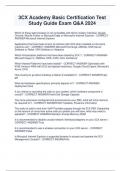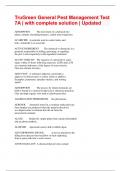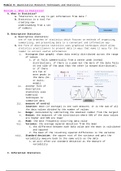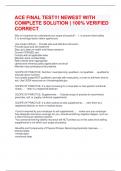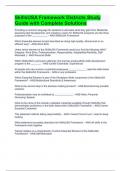2018 Tutorial 2
On 2nd October Galvatron PLC sends identical letters to three local firms asking if they wish
to buy an unused widget making machine that they have acquired. The letters state that “the
best offer received by 9.30am on 10th October will secure the machine.”
The following day Prime PLC sends a fax saying: “Is it a 5XL model? If so we will offer
$5000, if not, $3000.” Unfortunately due to a transmission fault, the final ‘0’ is missing so
that the last figure appears to be $300. The machine is not a 5XL.
Optimus PLC sends a letter offering $2500 or $100 more than your highest offer you receive
under $3500.”
Megatron PLC sends a telex on the evening of the 9th October offering $3500. The offer is
received on Galvatron’s telex machine at 6pm on 9th October, but not read until 10.30am on
10th October.
Advise Galvatron whether it is obliged to sell the widget making machine and if so, to whom.
Whether G is obliged to sell
General rule is that invitations to tender constitute an invitation to treat. However, if
inviter specifies he will accept highest offer, he has obligation to accept (Spencer v
Harding)
o G merely stated ‘best offer’ highly subjective and much less definitive
compared to highest offer, thus courts may not find that G has obligation to
accept
However, courts have stated that invitations to tender can constitute an offer,
especially if it is addressed to a small number of interested parties (Blackpool and
Flyde v Blackpool Borough)
o G sent identical letters to only three local firms likely to constitute an offer
Hence, G is obliged to sell
G’s obligation to sell to P
Since machine is not a 5XL, P’s offer is intended to be $3000 but was received by G
as $300
Unilateral mistake made by P G is not bound to ignore this offer P’s offer is
valid but likely to be too low at $300
o Different from Hartog v Collin and Shields, where subjective test was adopted
because both parties knew by industry convention that it was price per piece
not price per pound
G’s obligation to sell to O
O makes offer via letter general postal rule is that offer to ITT is made upon
posting letter (Household Fire v Grant)
But does not apply when postal rule is expressly disgraced (Holwell Securities v
Hughes) G explicitly states that the offer must be ‘received’ disgraces postal
rule would depend on whether O’s offer reaches G by 9.30am on 10th October
However, referential bids are generally not accepted (Harvela v Royal Trust) even
if O’s offer is received in time, unlikely to constitute an offer


